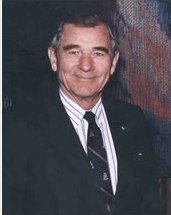- The Founding of Carleton University and the Faculty of Public Affairs
- Arthur Kroeger College – The University College
- About Arthur Kroeger
The Founding of Carleton University and the Faculty of Public Affairs
Carleton University was founded during the Second World War and its first graduates were in Journalism and Public Administration, at the time entirely new subjects for university study in Canada. Other ground-breaking programs followed such as Canadian Studies, and a scholarly culture of interdisciplinarity and collaboration between the traditional university disciplines became a prominent feature of Carleton. The profile of Carleton’s leading programs in the study of civic institutions and public policies, as well as the advantages of the university’s location in the national capital, were further promoted by the creation of the Faculty of Public Affairs in the late 1990’s, including the departments of Political Science and Economics, the School of Public Policy and Administration, the Norman Paterson School of International Affairs, Journalism and Communication, Law and Legal Studies, Criminology, Social Work, Political Economy, and European Russian and Eurasian Studies. The founding of this new Faculty was accompanied by the creation of a signature undergraduate degree: the Bachelor of Public Affairs and Policy Management (BPAPM) designed to marshal and showcase the expertise of the constituent units of the Faculty.
Arthur Kroeger College – The University College
The BPAPM is a distinctive policy studies program that combines interdisciplinary breadth in the study of public affairs and civic institutions with rigorous depth in the study of the conceptual foundations and the practical challenges of policy formation, assessment and management. It was also designed as a competitive entry, limited enrolment program, located in an exclusive college setting. The university college, ancient in conception but of enduring relevance, provides an intellectual home for students and fosters a sense of belonging to a scholarly community, matters that are often difficult to achieve (if at all) in large enrolment undergraduate degree streams.
Three other unique multidisciplinary Faculty of Public Affairs programs are affiliated with Kroeger College. The Master of Political Management (MPM) was introduced in 2011 and provides professional training for political staff, strategic communication and effective policy advocacy. The Bachelor of Global and International Studies (BGINS), introduced in 2015 with partners in the Faculty of Arts and Social Sciences as well as the Faculty of Public Affairs, offers cross disciplinary studies in international affairs and global relations beyond the state. The Master of Migration and Diaspora Studies (MDS), introduced in 2019, offers interdisciplinary graduate programs that combine cutting edge academic inquiry into social, cultural, political, and economic aspects of the movement of people with valuable experiential learning opportunities.
About Arthur Kroeger
 Kroeger College is named after Arthur Kroeger, a public servant of singular distinction and the seventh Chancellor of Carleton University. A remarkably warm and kind man who cared deeply for the university and its students, Arthur died on May 9, 2008.
Kroeger College is named after Arthur Kroeger, a public servant of singular distinction and the seventh Chancellor of Carleton University. A remarkably warm and kind man who cared deeply for the university and its students, Arthur died on May 9, 2008.
Known as the “Dean of Deputy Ministers,” Arthur held the post of deputy minister for six federal ministries from 1975 until 1992. He was the university’s Chancellor from 1993 to 2002, following which he was named Chancellor Emeritus. The College that bears his name was created in 1999, to educate students according to the example he set.
Born into a Mennonite family in Alberta in 1932, Arthur was raised during the Great Depression, and documented his family’s history in his memoir Hard Passage: A Mennonite Family’s Long Journey from Russia to Canada (University of Alberta Press, 2007). He took his B.A. in 1955 at the University of Alberta and then taught at St. John’s-Ravenscourt School in Winnipeg before going on to the University of Oxford as a Rhodes Scholar.
In 1958 he joined the federal Department of External Affairs and served in Geneva, New Delhi, Washington and Ottawa. His appointments as deputy minister included: Indian and Northern Affairs (1975-1977), Transport Canada (1979-1983), Regional Industrial Expansion (1985-1986), Energy, Mines and Resources (1986-1988), and Employment and Immigration Canada (1988-1992). He received the Public Service Outstanding Achievement Award in 1989.
He retired from public service in 1992, but remained as engaged and energetic as ever. In addition to serving as an activist and Chancellor of Carleton University, from 1993 to 1994 he was a visiting professor at the University of Toronto, and from 1993 to 1999 he was a visiting fellow at Queen’s University. He was Chair of the Public Policy Forum from 1992 to 1994, and Chair of the Canadian Policy Research Networks from 1999 to 2006.
He was made an Officer of the Order of Canada in 1989 and was promoted to Companion in 2000. He received honorary doctorates from the University of Western Ontario, the University of Calgary, the University of Alberta and Carleton University. In 2000, he was elected an Honorary Fellow of Pembroke College, Oxford.
His second book, Retiring the Crow Rate, about the controversial reform of Western grain transportation, is published by the University of Alberta Press.
